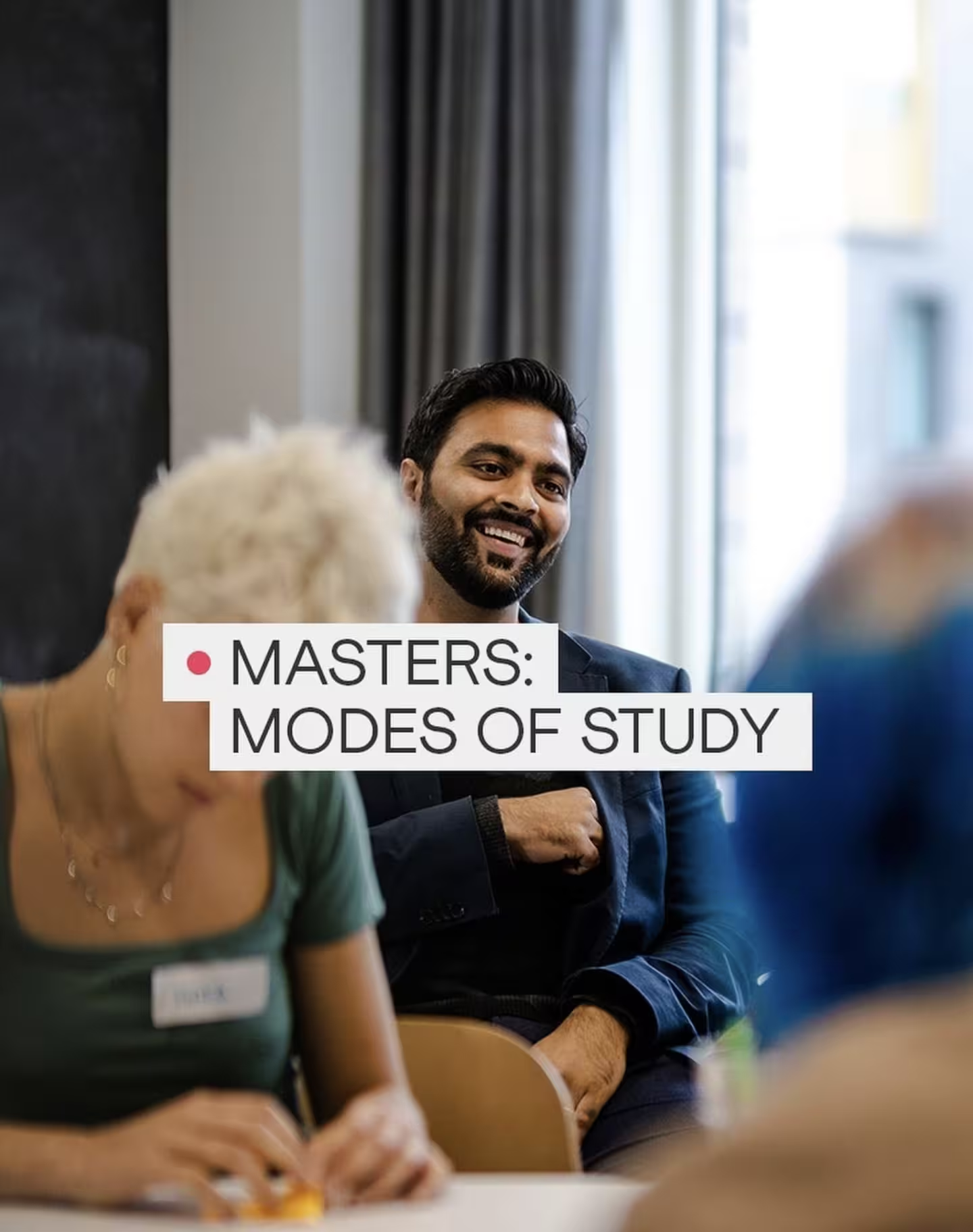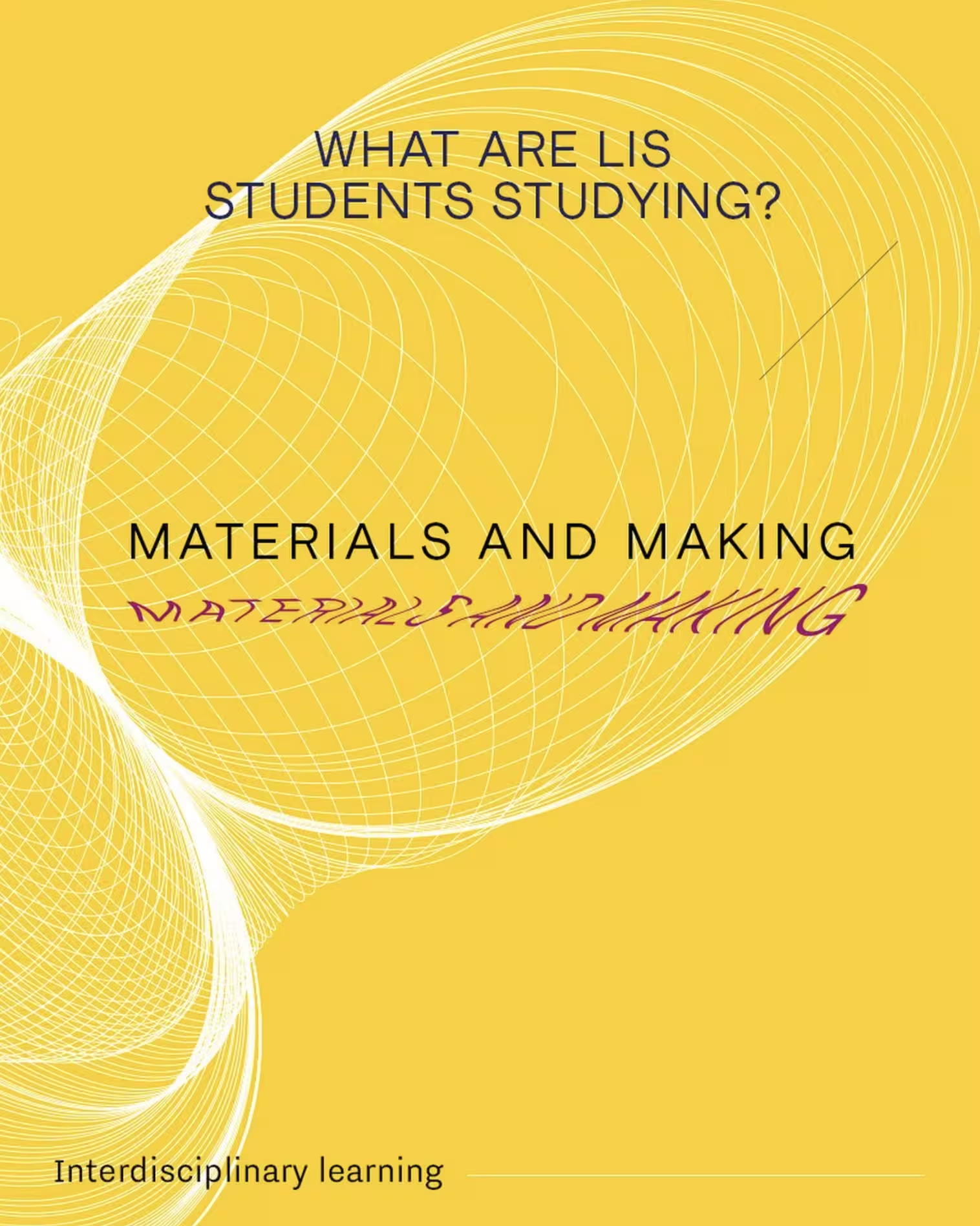Should I Do a Master's Degree? Let's Break it Down

If you're wondering, "Should I do a master's degree?" You're in the right place. A master's degree is a postgraduate qualification that is ideal if you have a bachelor's degree and want to advance in your academic qualifications, career prospects, and earning potential.
At LIS, we offer an interdisciplinary master's programme for eligible students who want to become expert complex problem solvers. Our approach encourages students to align their academic interests with their passions and be prepared to excel in any field.
This guide explores a master's degree, its advantages and drawbacks, and how LIS can help you gain your postgraduate qualification.
Table of Contents:
- What is a Master's Degree?
- What are the Requirements of a Master's Degree?
- What are the Benefits of a Master's Degree?
- What are the Drawbacks of a Master's Degree?
- How Much Does a Master's Degree Cost?
- How the LIS Master's Degree Stands Out
- How to Choose the Right Type of Master's Degree?
- Start Your master's Degree with LIS
A master's degree is a postgraduate qualification that enables students to acquire in-depth, specialised knowledge and skills in their chosen field. This postgraduate qualification positions students to become industry experts through specialisation. It typically involves advanced coursework, research, or applied learning and can take one to two years to complete full-time.
Master's programmes take many forms—from traditional subject-based courses to interdisciplinary approaches, such as the MASc at LIS—and are designed to equip students with the tools to solve real-world challenges. Ultimately, these programmes aim to help students gain specialist knowledge to improve their career prospects and secure high-level positions with increased earning potential that is not accessible with only a bachelor's degree.
There are many types of master's degrees. Here are the most common types:
- Master of Arts (MA): Focuses on humanities, social sciences, languages, and arts-related disciplines.
- Master of Science (MSc): Concentrated on scientific, technical, and quantitative subjects such as engineering, economics, or biology.
- Master of Business Administration (MBA): Designed for professionals aiming for leadership and managerial roles in business and entrepreneurship.
- Master of Fine Arts (MFA): A terminal degree in creative fields such as writing, visual arts, theatre, or film.
- Master of Research (MRes): Focuses on research methodology and academic research, often a precursor to a PhD.
- Master of Philosophy (MPhil): A research-heavy degree, typically used as a stepping stone to a doctorate.
Entry requirements for master's programmes vary depending on the programme and school you apply to. Here's an overview of what to expect to be eligible for a master's degree:
- A 2:1 (or equivalent) undergraduate degree
- A strong personal statement outlining motivation and goals
- Relevant experience or academic background for the chosen programme
- In some cases, references or an interview
It can be challenging to fulfil the entry requirements for a master's degree, as not all students have taken the traditional path and completed a related undergraduate course. However, some learning institutions, like LIS, offer a flexible admissions process that considers students on a case-by-case basis and considers extensive professional experience instead of academic qualifications only.
These are the advantages of a master's degree and how these qualifications can help students propel themselves.

Career Opportunities and Advancement
The top advantage of completing a bachelor's degree is access to high-skilled employment opportunities. A master's degree can open doors to higher-level roles, specialist positions, and leadership tracks. In many sectors, such as policy, technology, sustainability, or consulting, it's becoming a key differentiator for career progression.
Master's degree graduates earn around 16% more than undergraduate students, so if career advancement and a salary increase are your priorities, a master's degree is an excellent solution.
Skill Development and Personal Growth
Postgraduate education fosters critical thinking, research, communication, and problem-solving skills. Students are challenged to gain in-depth knowledge of their field of interest, and depending on the type of master's degree you pursue, you'll mostly work independently. These elements are crucial for professional development because you must rely on your understanding and research skills to complete master's postgraduate courses.
For example, a bachelor's degree is structured with lectures and pre-defined coursework that you complete with assignments and exams to test your knowledge. However, a master's degree requires you to choose your research project or thesis and demonstrate how your understanding of your chosen field makes you an expert.
Networking Opportunities
Most students pursuing a master's programme have extensive professional experience or an undergraduate degree. Fortunately, these students can advance their careers and expand their networks while completing their master's studies. Postgraduate courses often have mentorship opportunities, on-campus and live events and similar resources to connect you with like-minded companies and potential employers. Unlike networking opportunities in an undergraduate degree, postgraduate students have a better chance of securing higher-value connections and job prospects.
Here are the challenges of completing a master's degree to help you make the right decision.

Financial Cost
Master's degrees require a significant financial investment. Because master's courses equip you with expert knowledge and skills and prepare you for improved career paths with increased earning potential, these programmes are often expensive. You must also consider living costs, transportation costs and lost earnings if you opt for full-time study. However, choosing online learning may be more affordable, but you can still expect to pay high tuition fees.
On average, a master's degree programme costs £8,740 per year for local students and £17,109 for international learners. Fortunately, many learning institutions offer financial resources, such as scholarships and student loans, to fund your studies.
Time Commitment
A full-time master's degree typically takes one to two years, while part-time study can extend over three or more years. Depending on whether you wish to pursue full-time employment during your studies, it can take you up to three years to earn a master's qualification.
Remember, you'll pay per annum for your studies, so the longer it takes you to complete, the higher your expenses.
Beyond increased costs, it's challenging to balance your time commitment as a master's degree is intensive. The best way to overcome this setback is to evaluate your programme and determine how to adjust your current work or personal life to ensure you have enough time to work on your qualifications.
Opportunity Cost
In some cases, gaining work experience may be more beneficial than returning to study, especially if you're unsure of your long-term goals or already have strong professional momentum. Even if you pursue a part-time master's degree, this will still take away time that you could use to advance your career.
Because of this, evaluate whether a master's degree will be helpful to you at the stage of your job and if the investment will pay off in the long term. For instance, a master's degree may not be the best choice if you have recently received a promotion to a high-level job and are unsure about what you want to study and how it will help you progress.

As we mentioned, a UK home-fee-paying master's degree can cost around £8,740 per year, while international students pay around £17,109.
But, these degrees can range from £4,000 to £22,000, depending on what you want to study, which institution you study with, whether you're international or local and how long you study for.
Here's how LIS's master's programme stands out, helping students from all walks of life progress through interdisciplinary study, flexibility, accessibility, and comprehensive support.

Interdisciplinary Learning
Unlike a traditional master's degree, LIS's MASc programme doesn't focus on a particular subject. Instead, it covers interdisciplinary topics to help students become expert complex problem-solvers and changemakers. You'll learn how to apply interdisciplinary methods in the field you are most passionate about. This master's programme covers a range of quantitative and qualitative skills, including coding, probability, and statistics.
What makes this degree unique is that you don't need to be in a specific field to pursue it, and with no specialisation, you can become an industry leader in core disciplines. Whether you want to gain a competitive edge in the job market or change your career, the LIS MASc degree is the perfect solution.
Here's a glance at what the curriculum covers:
Core Modules:
- Complexity: Learn complexity in quantitative sciences, starting with mathematical fundamentals and covering cellular automata, dynamical systems, and information theory.
- Integration: Understand how to achieve synthetic results by integrating different bodies of knowledge and how integration works in theory.
Problem Electives:
- AI Futures: Technics, Ethics, and Aesthetics
- Designing for Life: Living Within Planetary Boundaries
- Acting Human: Cultural Technology and Human Action
Methods Modules:
- Trials and Errors: How to read and think like a scientist
- Re:Form: Understanding and manipulating visual media
- Cracking the Code: Learn to code by engaging in practical applications of Python libraries as they relate to data science problems
- The Right Word: Analysing and creating impactful language
- Everything Counts: Probability, statistics, and numerical estimation
Students will also complete a capstone research project on a problem area of their choice.
Flexible and Tailored Experience
In contrast to traditional master's qualifications, our MASC degree is flexible for working-age postgraduates. You can tailor your learning experience to understand complex problem-solving in the field you're most interested in.
For example, if you want to become an expert in business administration and related fields, you can choose modules that best align with these topics. In addition, you can use your capstone project to demonstrate your expertise in the industry of your choice and how you would use interdisciplinary methods to solve real-world problems. In other words, you're not just working on one fixed topic for your capstone project—you can work on an issue you're most passionate about.
While many professional bodies have standard entry requirements to pursue a master's degree, we offer a flexible admissions process at LIS. We make postgraduate study accessible to students from all walks of life and consider extensive industry experience or an equivalent qualification to a bachelor's degree on a case-by-case basis. If you didn't take the traditional academic route and want to study for a master's degree, you can do so with LIS.
Another aspect of our MASc programme that is flexible is the degree structure. We offer part-time and full-time study options:
Full-time Study:
- Time Commitment: One year
- Home Tuition Fees: £14,000 per year
- International Tuition Fees: £25,000 per year
- Structure: Five to ten hours of live classes per week.
Part-time Study:
- Time Commitment: Two years
- Home Tuition Fees: £7,000 per year for two years
- International Tuition Fees: £7,000 per year for two years
- Structure: Two to three hours of online classes per week.
Academic and Support Resources
At LIS, we know that studying for a postgraduate qualification is challenging. The workload is intensive, and the financial requirements can also make it a more stressful experience. We offer extensive academic, career, and financial support to solve these pain points and make your master's programme easier.
Postgraduate students can access numerous career resources, including internships and dedicated career coaching. Our career coaching works with up to five or six students, where they can understand how to build a solid foundation in interdisciplinary learning. This service is one of five pillars of our master’s programme, alongside problems, methods, research and integration.
Ultimately, our career coaching gives students a sense of belonging, helps those from diverse backgrounds have a voice and keeps postgraduate learners on track with their academic performance and progress.
Additionally, we offer a welfare advisor and academic tutor to deliver the support you need to excel. Many on-campus and live events also allow you to engage with like-minded industry professionals and extend your network. You can attend various social events and join clubs and societies, such as football, climbing, boxing, music, and podcasting. We also support students in starting their clubs and societies.
Finally, financial aid is also available through bursaries and scholarships:
- Financial Support Bursary: LIS evaluates students experiencing financial hardship on a case-by-case basis to determine a tuition discount.
- MASc Innovation Scholarship: Eligible students will receive up to £5,000 towards their programme.
Choosing the right master's degree is critical, as it determines what you'll learn, how long you'll study, and what qualifications you'll achieve. Here are the top questions you need to ask to choose the best type of master's programme for your career:
- What's your long-term career goal?
- Do you want to specialise in one area or think across disciplines?
- Do you have the appropriate professional experience to apply for a master's degree?
- Do you prefer academic research or applied and practical learning?
- Are you looking for a full-time, part-time, or online format?
- Do I need a specialised or generalist degree?
- Which institutions or programmes are best respected in my field?
- What is the return on investment (ROI)?
- How is the curriculum structured?
- What are the programme's career support services like?
- What do current students and alumni say about the programme?
If you want to progress your academic qualifications beyond a bachelor's degree, a master's programme is the best choice. These degrees can help you secure high-level career prospects, increase earning potential, and become an industry expert who stands out in competitive markets.
However, there are a few drawbacks to consider. For one, master's programmes are expensive, require an intensive time commitment, and you need to carefully evaluate opportunity costs.
Fortunately, at LIS, we make postgraduate qualifications more accessible and flexible. Our interdisciplinary programme prepares you to become a complex problem-solver, learn to think outside the box, and rely on multiple core disciplines to excel in your career.
Ready to get your master's degree started? Contact LIS today.
Share this story
Sign up for our newsletter
Don't miss out on important updates including course information, new announcements, Open Day dates and the latest LIS news.

.png)












































.svg)

.svg)









.webp)
This is a comment related to the post above. It was submitted in a form, formatted by Make, and then approved by an admin. After getting approved, it was sent to Webflow and stored in a rich text field.